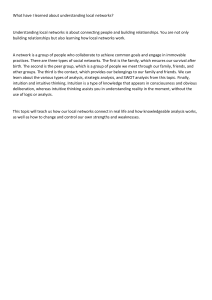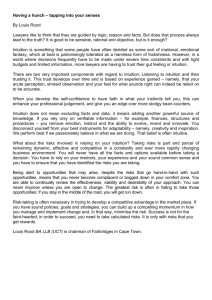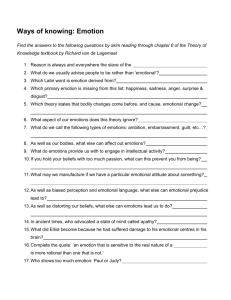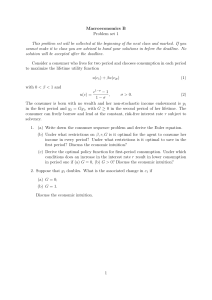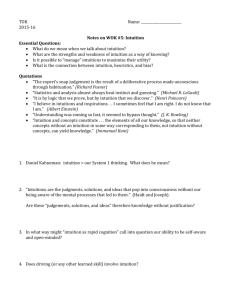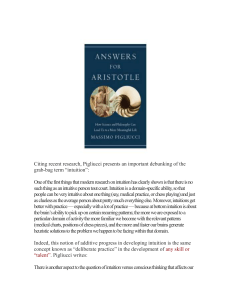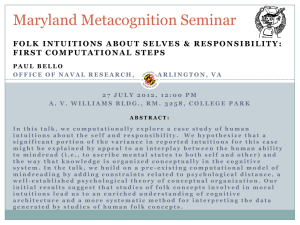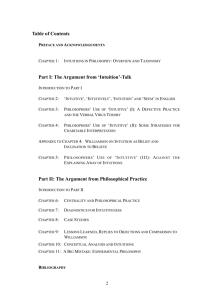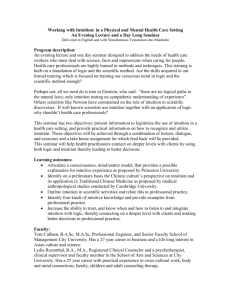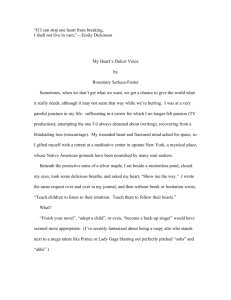Lamar High School - In maintenance mode
advertisement
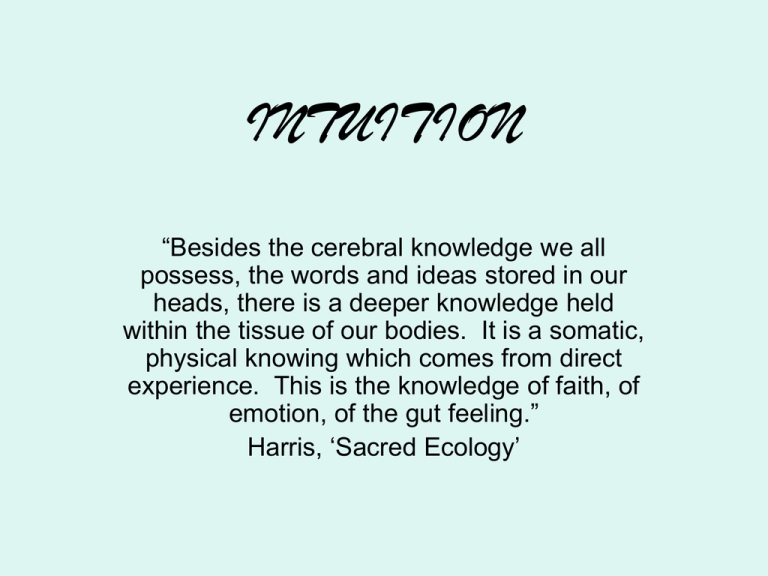
INTUITION “Besides the cerebral knowledge we all possess, the words and ideas stored in our heads, there is a deeper knowledge held within the tissue of our bodies. It is a somatic, physical knowing which comes from direct experience. This is the knowledge of faith, of emotion, of the gut feeling.” Harris, ‘Sacred Ecology’ What is Intuition? • Unguided thinking • Experience that can’t be explained • Know something without knowing how you know it • Inner voice • Intuitions as opposed to mere sensations, can be informed and insightful. What are the implications of these definitions? Where is the intuitive world? • Reason – head • Intuition – other parts of body When should we rely on intuition and when should we not? If we refer to knowledge as justified, true belief then how do we gain knowledge from intuition? Where do our intuitions come from? • DNA or Remnant of our evolutionary past • Learn our intuitions, dependent on reason and experience • Linked to the unconscious What are the differences between rational and intuitive thinking? Reason—slow, hard, relatively sure Intuition – quick, easy, open to doubt What are the implications of intuitive thinking? • The struggle towards knowledge • “Natural” intuitions should have free reign • “Learned” intuitions need to be nurtured in best possible environment What should be the role of intuition in modern society?
